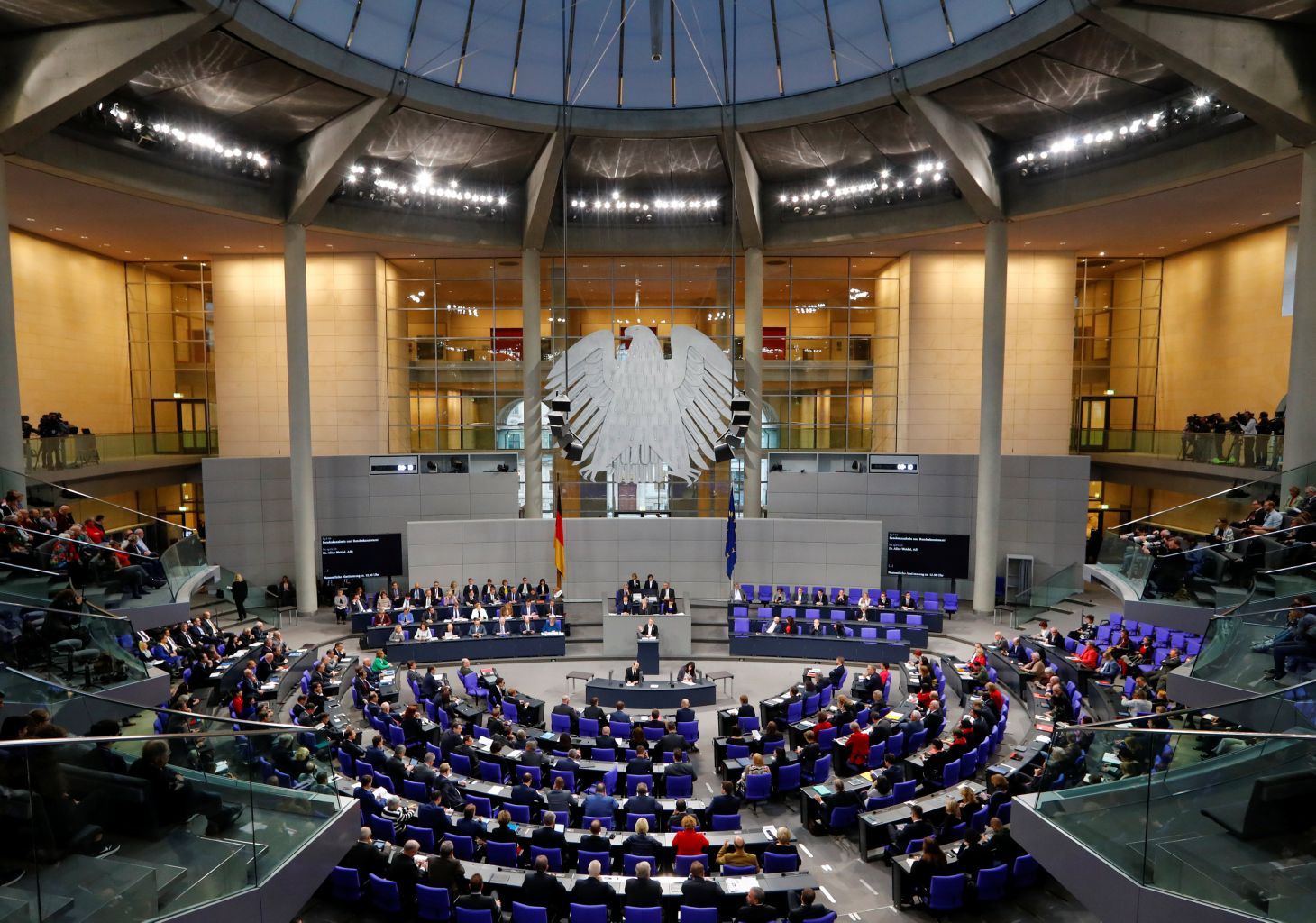What to look out for in 2019: Can anything stop the populism wave?
Sign up now: Get ST's newsletters delivered to your inbox

Alternative for Germany (AfD) co-leader Alice Weide speaking in a session at the Lower House of Parliament in Berlin on Nov 21, 2018. AfD made it into Parliament for the first time in 2017 and immediately became the strongest opposition party.
PHOTO: REUTERS
It is nothing less than a wave that has seized the Western world - a wave of populism that has a clearly defined enemy: Western liberalism.
It started with Hungary and Poland earlier this decade, and made its way to the United States, to the Slovak Republic, to Austria, Italy and the latest addition, to Brazil - to name only a few prominent examples.
In France, in spring last year, the right-wing populists were defeated in the run-off between the liberal Emmanuel Macron and Ms Marine Le Pen of the Front National. In Britain, many think that the vote for Brexit in 2016 had its roots in a broad support for populist views. In Germany, the right-wing party Alternative for Germany (AfD) made it into Parliament for the first time in 2017 and immediately became the strongest opposition party.
Not long ago, liberalism was the dominant and undisputed world view. Today, hardly anybody would subscribe any more to this notion.
On the contrary, Western liberalism never before has come under so much pressure - and is now going through a time of gnawing self-doubt.
At the same time, populists are attacking the institutions that have been key to the structure of post-war Western societies: independent jurisdiction, free media and multilateral organisations.
The movements also share a deep disregard for social conventions, be it in language, behaviour or information. Due to the rise of social media, populists can circumvent the established media - disseminating their views unfiltered and unchecked.
Why do these movements have so much support?
For one thing they tap voter reservoirs that have been inactive for most of the past. Second, they indeed are able to identify weaknesses of the liberal systems:
1. The growing imbalance of income.
2. The lenient treatment of the ones responsible for the financial crisis in 2008/2009, for instance banks, hedge funds and other institutions.
3. The insufficient communication with regard to mass migration coupled with a feeling of insecurity.
4. The growing sense that globalisation and digitisation is leaving behind significant parts of society, thus creating camps of winners and losers.
5. The shared understanding that the ruling liberal elites are behaving arrogantly and too often consider the state as a self-serving store.
This biting criticism has left a mark on the self-perception of liberals. Their protagonists are starting to question their own ideas and wonder how much they have contributed to the undermining of their values.
Said Dr Jan Zielonka, professor of European politics at the University of Oxford in Britain and a self-proclaimed liberal: "Liberalism has become an ideology of power."
For Dr Zielonka "liberals have become illiberals" because he believes that liberals are imposing their school of thought on all the others - citing political correctness as an example. In the end, voters did not have a real choice any more, he said. "We were allowed to change governments, but not policies."
Similarly, political scientist John Mearsheimer, whose book The Great Delusion made waves this year, is also convinced that the liberal order is at least in part to blame for the rise of populism.
With institutions like the International Monetary Fund (IMF), the World Bank, the World Trade Organisation (WTO) or Nato, the Western military alliance, the world has been structured to the liking of liberals.
"After 1989 and the collapse of the communist bloc, the US wanted to make the world in America's image," Professor Mearsheimer, a renowned academic from the University of Chicago, said recently while promoting his book in Germany. "The idea was: If all societies become liberal, then we will have peace and no human rights violations... Because liberal democracies who are economically dependent do not go to war with each other."
This assumption, however, is not shared by Prof Mearsheimer. "Liberal states are not peaceful by definition," he said.
For him, the current populist backlash, therefore, did not come as a surprise. "Nationalism and realism trump liberalism at every turn."
Although according to Prof Mearsheimer, US President Donald Trump is lacking a coherent worldview, he is running against the liberal hegemony and its institutions. For populists with their anti-establishment sentiment, he provides the perfect platform.
The coming year will provide more tests for the old world order but also opportunity - especially if leaders who rode the wave of populism to power fail to deliver on their promises.
Still, Dr Zielonka said a longer-term solution is needed for liberalism to thrive again: "We have to share our wealth - if we do not do that, everything will fall into pieces."


